New publication sheds light onto the molecular basis of neurotransmitter signaling
A new paper led by Alex Luebbers in the Garcia-Marcos Lab dissects the molecular basis for how GINIP, a Gαi-interacting protein in neurons involved in controlling pain and seizures, modulates GPCR responses triggered by neurotransmitters. GINIP mimics how G-protein signaling effectors bind to Gα subunits via its PHD domain to differentially scale discrete G-protein signaling branches. The paper has been published in Structure (https://www.sciencedirect.com/science/article/abs/pii/S0969212623003891?via%3Dihub), and was previously posted on bioRxiv (https://www.biorxiv.org/content/10.1101/2023.04.20.537566v1).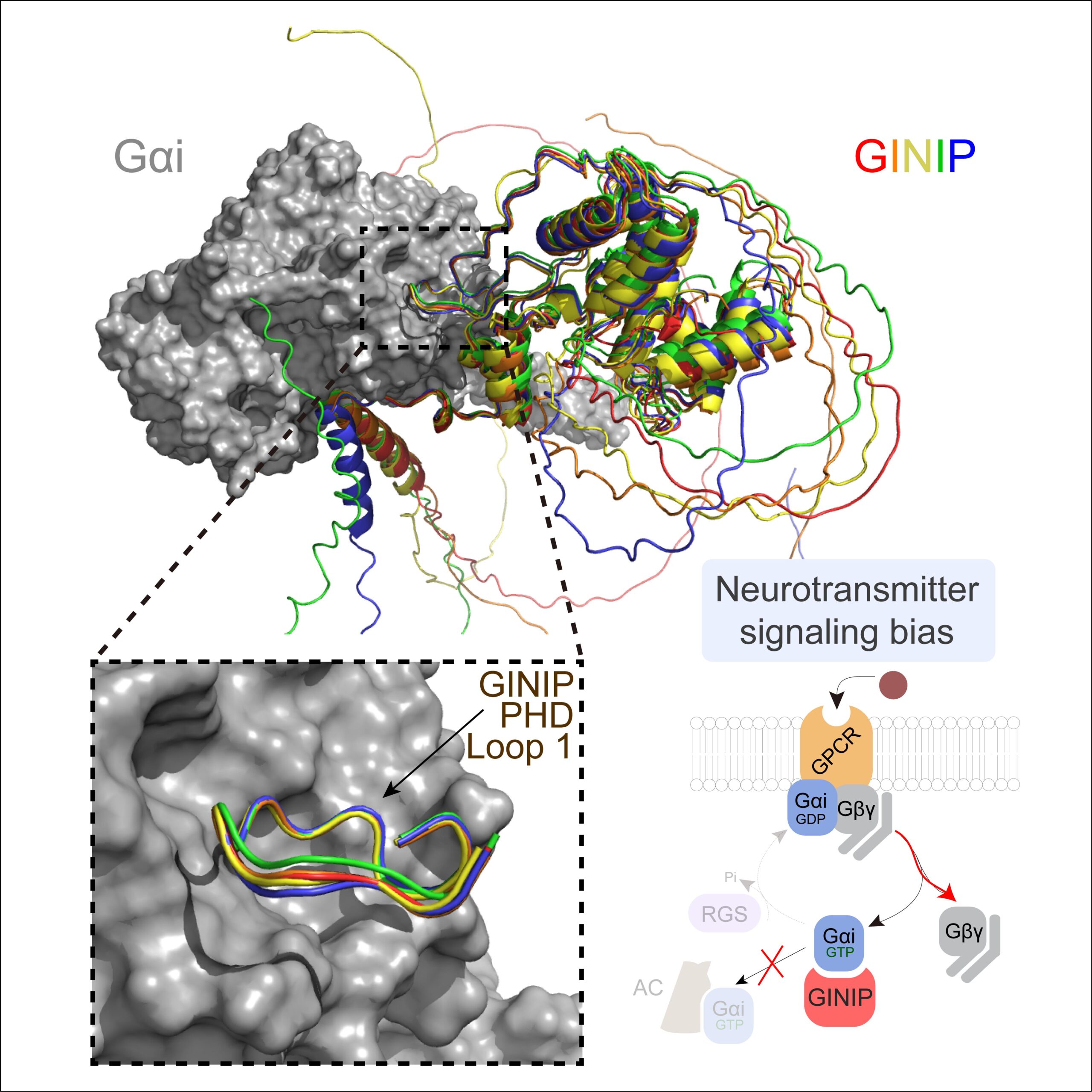
This paper builds and explands on another paper recently published in the same lab establishing that the neuronal protein GINIP shapes GPCR inhibitory neuromodulation via a unique mechanism of G-protein regulation that controls pain and seizure susceptibility (Park, Luebbers, et al Molecular Cell, 2023). However, the molecular basis of this mechanism remained ill-defined because the structural determinants of GINIP responsible for binding and regulating G proteins were not known. The newly published paper combined hydrogen-deuterium exchange mass spectrometry, computational structure predictions, biochemistry, and cell-based biophysical assays to demonstrate an effector-like binding mode of GINIP to Gαi. These findings explain the molecular basis for a post-receptor mechanism of G-protein regulation that fine-tunes inhibitory neuromodulation.
This paper features collaborations with the labs of Stephen Eyles at UMass-Amherst and of Joshua Levitz at Weill Cornell.
Mohsan Saeed, PhD, Honored with 2023 Smith Family Foundation Odyssey Award
M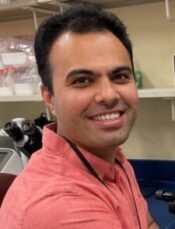 ohsan Saeed, PhD, Assistant Professor of Biochemistry & Cell Biology, has been selected as a recipient of the 2023 Smith Family Foundation: Odyssey Award. He is the first recipient from BU to get the Smith Odyssey Award.
ohsan Saeed, PhD, Assistant Professor of Biochemistry & Cell Biology, has been selected as a recipient of the 2023 Smith Family Foundation: Odyssey Award. He is the first recipient from BU to get the Smith Odyssey Award.
As part of this honor, Saeed will receive $400,000 to study how mosquito-borne viruses (arboviruses) overcome the immune system of mosquitoes and establish persistent infection that is then transmitted to humans. He will collaborate on this project with Joseph Zaia, PhD, professor of biochemistry & cell biology, and Fabiana Feitosa-Suntheimer, PhD, a senior research scientist at BU’s National Emerging Infectious Diseases Laboratories (NEIDL).
Mosquito-borne arboviruses claim over one million human lives each year and are considered a global health priority due to frequent resurgence of activity and unprecedented geographical expansion in recent decades. In the absence of vaccines and targeted treatments, the design of strategies to control arboviruses at the mosquito level is imperative.
According to Saeed, his project is based on the premise that an in-depth understanding of mechanisms by which arboviruses establish lifelong infection in mosquitoes can inspire the design of powerful approaches to reduce viral transmission to humans. He will use an advanced technique, which he recently developed, to investigate the molecular details as to how arboviruses disarm mosquitoes’ antiviral defense systems and establish persistent infection.
“These studies will open up new lines of investigation into viral persistence and mosquito biology and facilitate the design of transgenic mosquitoes unable to harbor and transmit infections. It will also accelerate a discovery pipeline that can then be extended to other insect-borne pathogens such as plasmodium and borrelia,” said Saeed, who also is an investigator at the NEIDL.
Saeed received his MPhil in microbiology from Quaid-e-Azam University, Pakistan, where he studied the molecular epidemiology of polio-like viruses in patients suffering from paralysis. He then joined the University of Tokyo, receiving his PhD in Pathology, Immunology and Microbiology. During his doctoral studies, he developed novel cell culture systems for the study of hepatitis C virus (HCV) and investigated various aspects of this virus in diverse in vitro and in vivo settings.
Saeed then entered the laboratory of Nobel laureate Charles M. Rice, PhD, at The Rockefeller University, New York, for his postdoctoral training. Although his research in the Rice Lab mainly focused on HCV, he also gained expertise with a number of other positive-strand RNA viruses, including enteroviruses, flaviviruses and alphaviruses. In addition, Saeed developed a novel viral degradomics technique that allows an unbiased identification of cellular proteins cleaved during viral infections.
Saeed joined BU in 2019; his lab explores the role of viral and host proteases in disease mechanisms of positive-strand RNA viruses at the NEIDL. In early 2021 when COVID-19 was declared a global pandemic, his lab pivoted to SARS-CoV-2 research and has since made contributions to the molecular understanding of how SARS-CoV-2 establishes infection in various tissues and interacts with the human innate and adaptive immune systems.
The Richard and Susan Smith Family Foundation created the award in 2017 to fuel creativity and innovation in junior investigators in the basic sciences. It supports the pursuit of high impact ideas to generate breakthroughs and drive new directions in biomedical research. The award funds high-risk, high-reward pilot projects solicited from the brightest junior faculty in the region.
Biochemistry & Cell Biology 2023 Retreat to Thompsons Island
On September 22. 2023 the Department of Biochemistry & Cell Biology ventured out to Thompsons Island in the Boston Harbor for its annual retreat. We are a large department, and the retreat provides an opportunity to bring people together to learn about the work taking places across different laboratories and specialties, as well as meet people from the different groups.
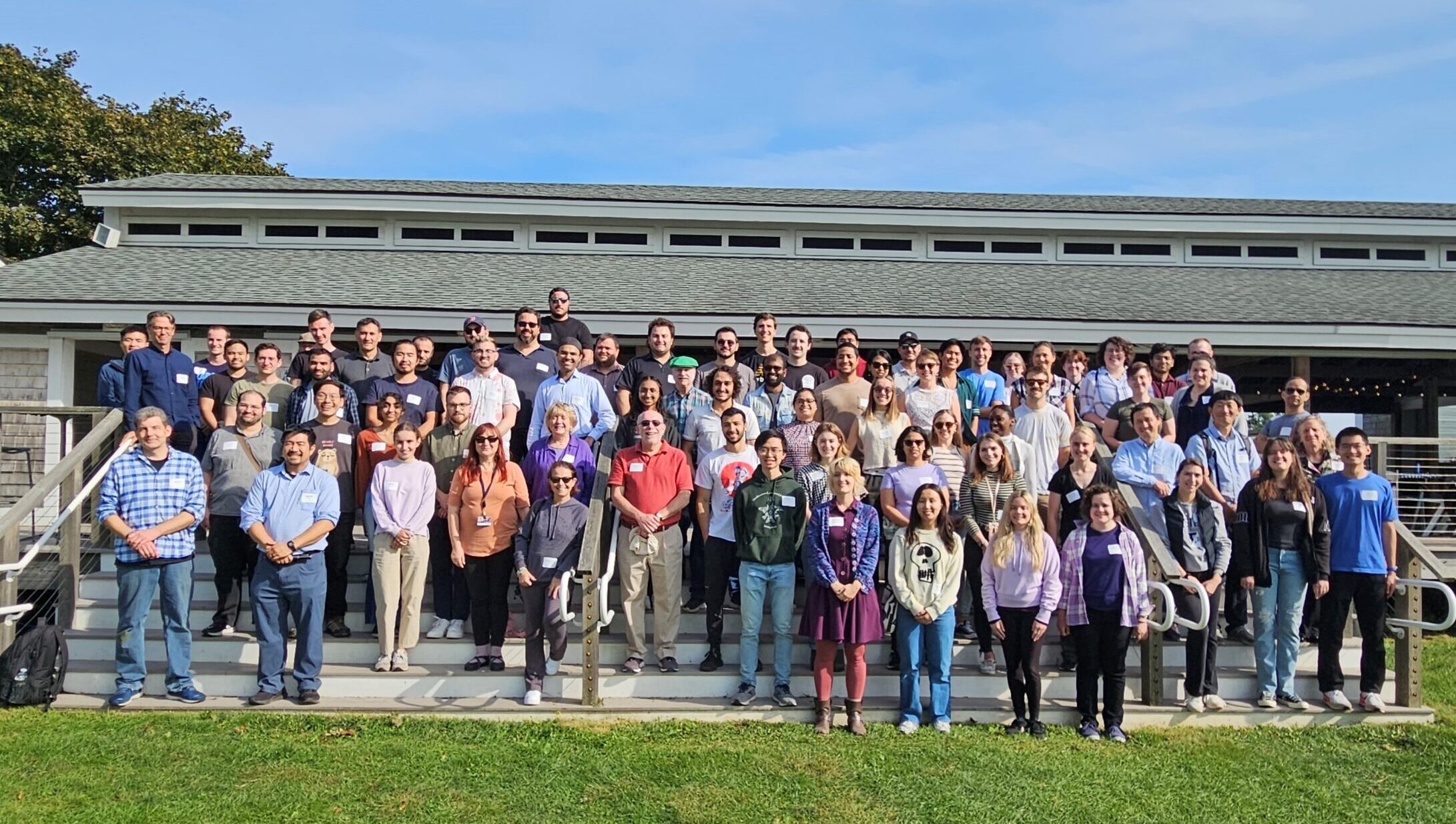
The agenda included a 'state of the department' delivered by department chair Dr. David Harris, presentations by several PIs within the department. At the end of the day we held a Poster Session where trianees in the labs were able to present their work and we voted on winners!
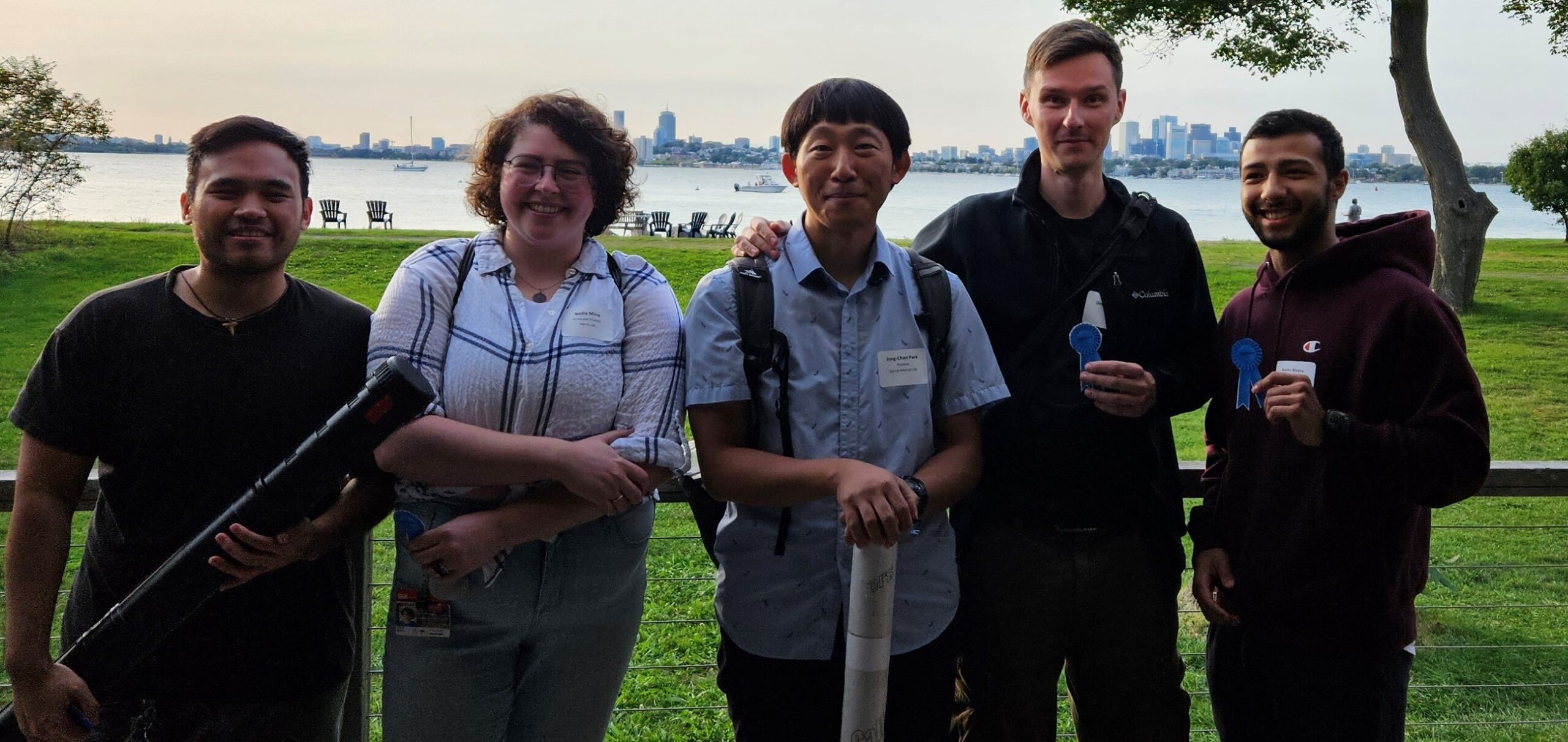
New Publication from the Garcia-Marcos Lab: Coordinating signaling responses in neurons
The Garcia-Marcos Lab has recently published a study in Molecular Cell (https://doi.org/10.1016/j.molcel.2023.06.006; prepint in: https://www.biorxiv.org/content/10.1101/2023.03.03.529094v1) titled “Fine-tuning GPCR-mediated neuromodulation by biasing signaling through different G protein subunits”. The paper describes how different signaling responses triggered by the same neurotransmitter receptor must be carefully scaled to ensure proper brain function. They found that the protein named GINIP shifts the balance of two different G protein sub-species activated simultaneously by G protein-coupled receptors (GPCRs), a large family of surface receptors that respond many neurotransmitters and neuropeptides, including GABA, dopamine, serotonin, or opioids. This mechanism operates in synapses that dampen neurotransmission and, when disabled, results in increased seizure susceptibility in mouse models. These findings have important implications for the fundamental understanding of neuronal communication and for the development of new therapeutic agents that act on GPCRs.
This work was co-led by Jong-Chan Park (Postdoc) and Alex Luebbers (Graduate Student) with collaborations from the Martemyanov Lab at UF Scripps Biomedical Research Institute and the Yano Lab at Northeastern University, and has been highlighted by Molecular Cell (https://doi.org/10.1016/j.molcel.2023.06.034) and Science Signaling (https://www.science.org/doi/10.1126/scisignal.adj6131).
Grishok Lab recently (June 24-28, 2023) attended the 24th International C. elegans Conference at the Scottish Event Campus (SEC) in Glasgow.
Grishok Lab recently (June 24-28, 2023) attended the 24th International C. elegans Conference at the Scottish Event Campus (SEC) in Glasgow.
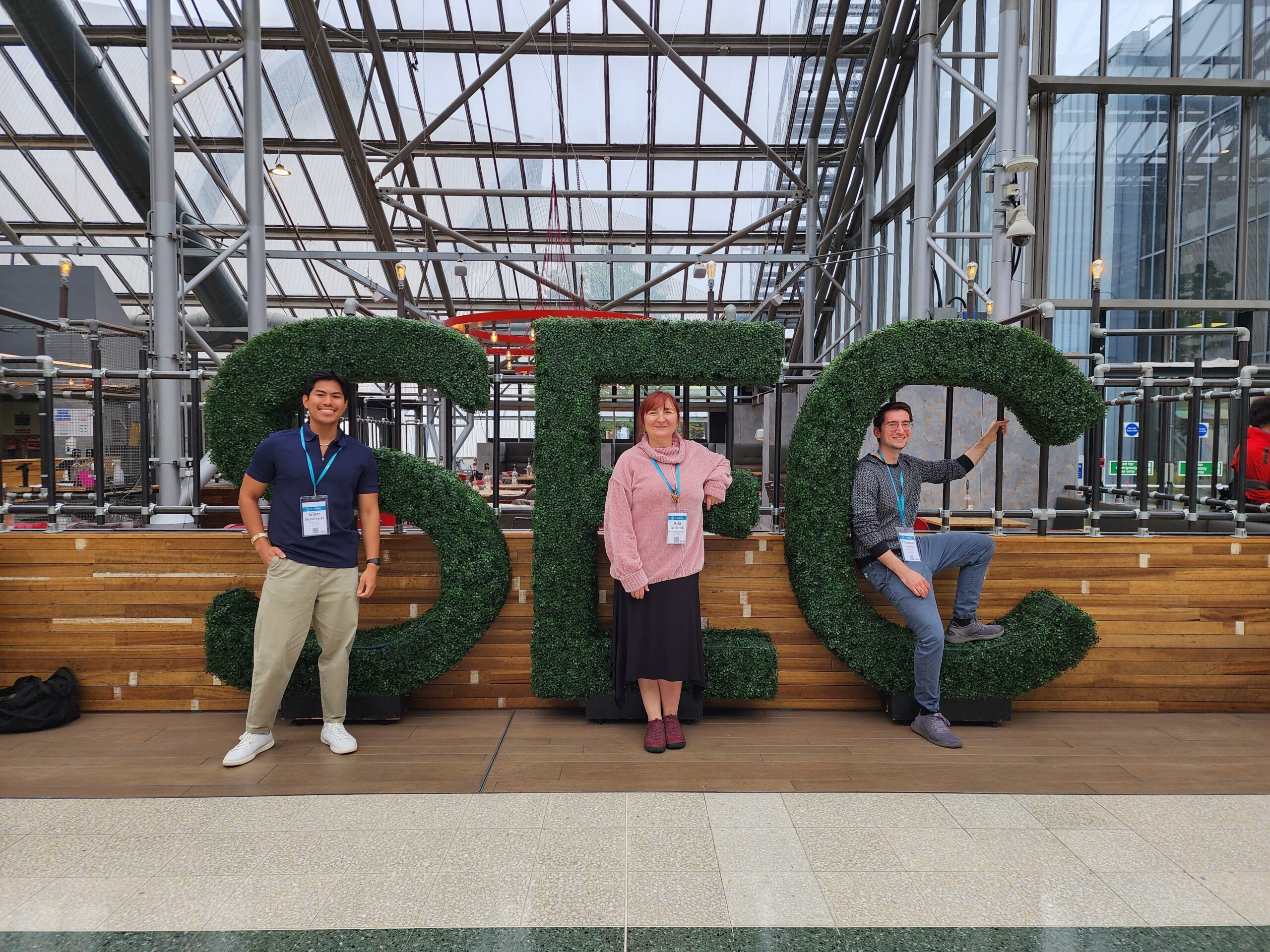
Gian Sepulveda and Thomas Liontis were busy presenting posters.
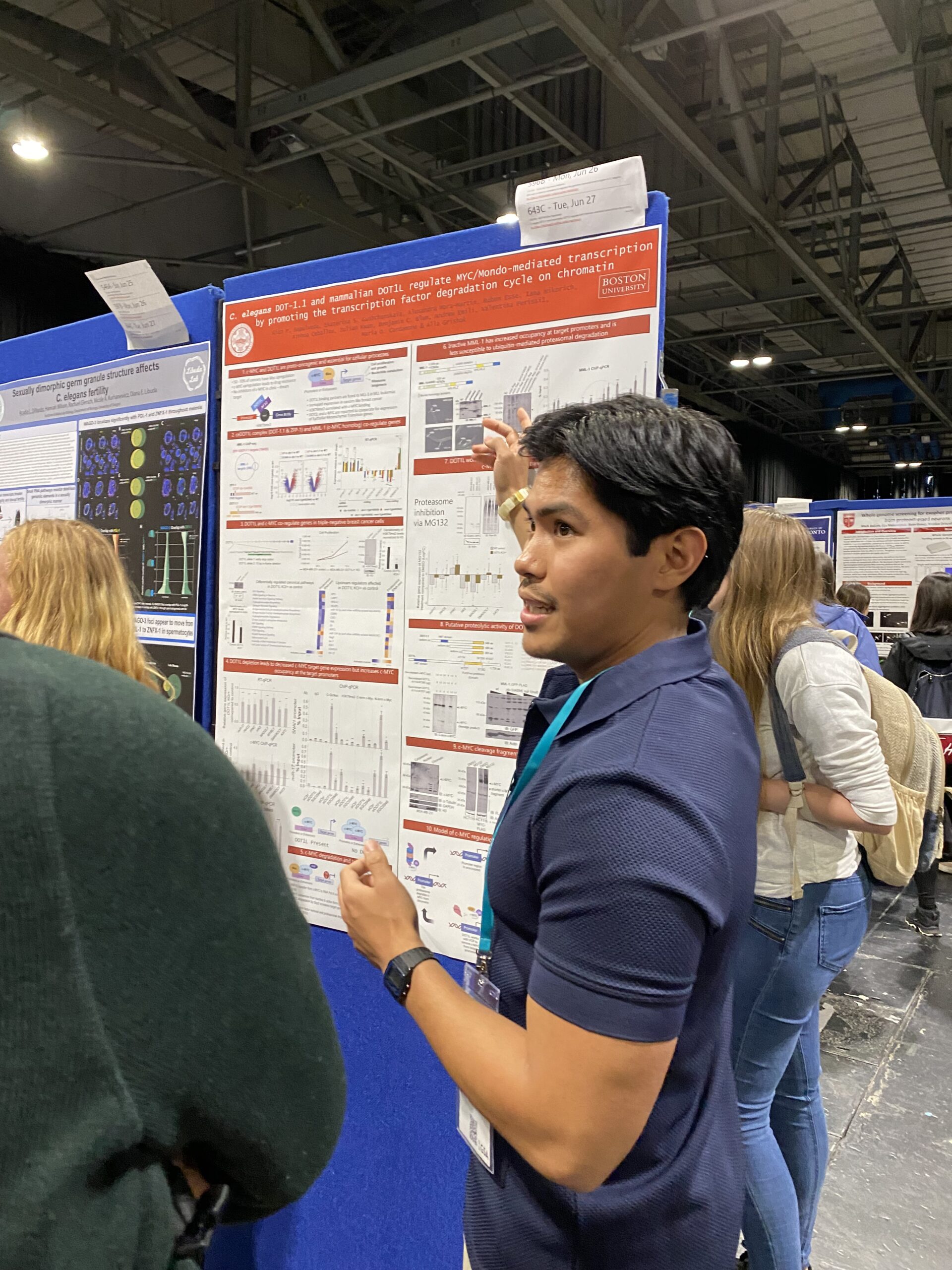
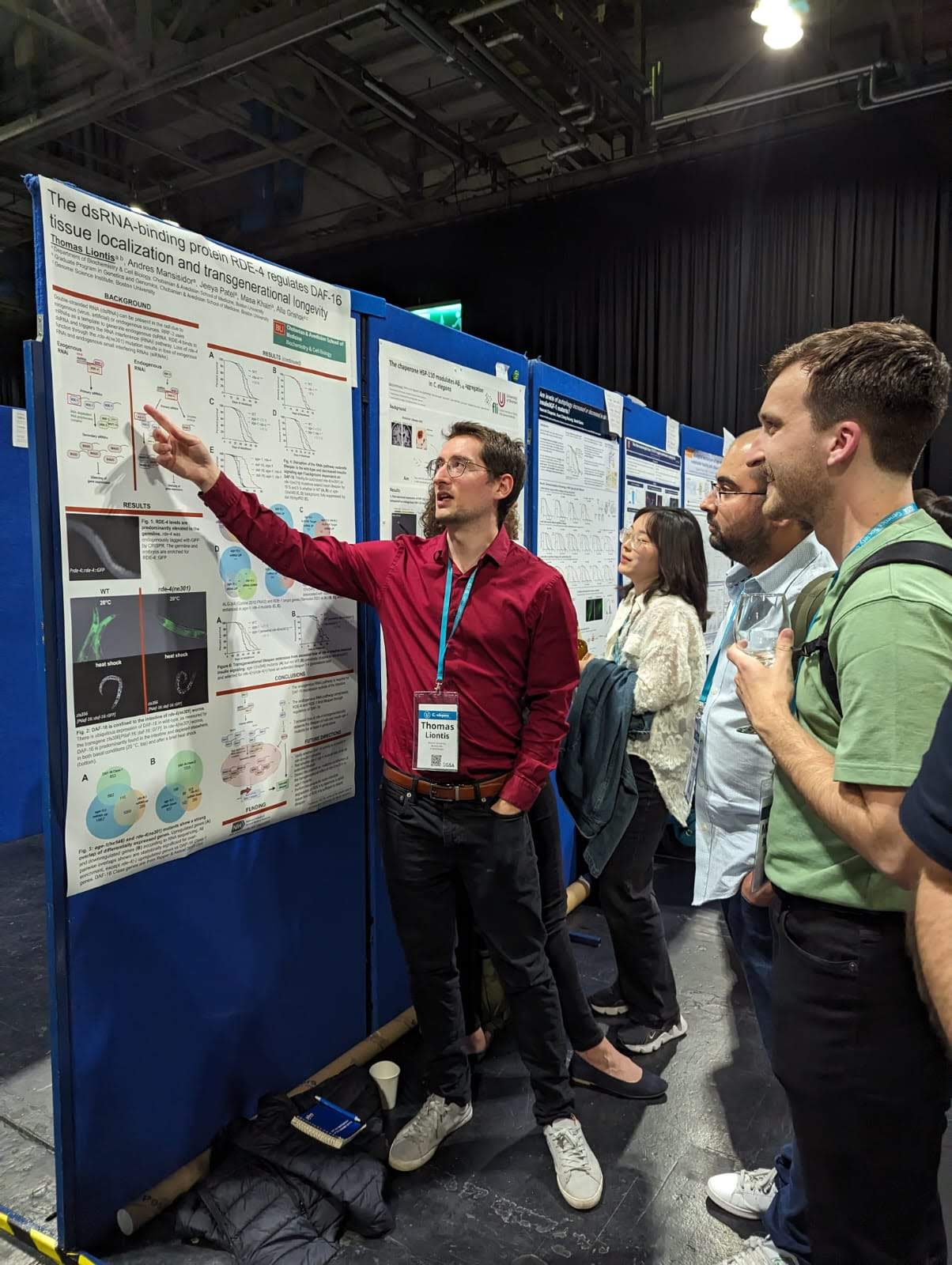
Glasgow's medieval history is impressive, and so is modern mural art. 

New Publication: The Saeed lab publishes a paper reporting cell culture systems for isolation of SARS-CoV-2 from clinical isolates and production of recombinant virus
The Saeed lab publishes a paper reporting cell culture systems for isolation of SARS-CoV-2 from clinical isolates and production of recombinant virus.

Summary: A simple and robust cell culture system is essential for generating authentic SARS-CoV-2 stocks for evaluation of viral pathogenicity, screening of antiviral compounds, and preparation of inactivated vaccines. Evidence suggests that Vero E6, a cell line commonly used in the field to grow SARS-CoV-2, does not support efficient propagation of new viral variants and triggers rapid cell culture adaptation of the virus. We generated a panel of 17 human cell lines overexpressing SARS-CoV-2 entry factors and tested their ability to support viral infection. Two cell lines, Caco-2/AT and HuH-6/AT, demonstrated exceptional susceptibility, yielding highly concentrated virus stocks. Notably, these cell lines were more sensitive than Vero E6 cells in recovering SARS-CoV-2 from clinical specimens. Further, Caco-2/AT cells provided a robust platform for producing genetically reliable recombinant SARS-CoV-2 through a reverse genetics system. These cellular models are a valuable tool for the study of SARS-CoV-2 and its continuously emerging variants.
Find the full article here.
New Publication: The Garcia-Marcos lab, in collaboration with members of the Department of Chemistry at Boston University and the CSIC-CIB in Spain, have published in Proceeding of the National Academy of Sciences (PNAS) …
The Garcia-Marcos lab, in collaboration with members of the Department of Chemistry at Boston University and the CSIC-CIB in Spain, have published in Proceeding of the National Academy of Sciences (PNAS) the discovery of a chemical compound that specifically blocks an aberrant
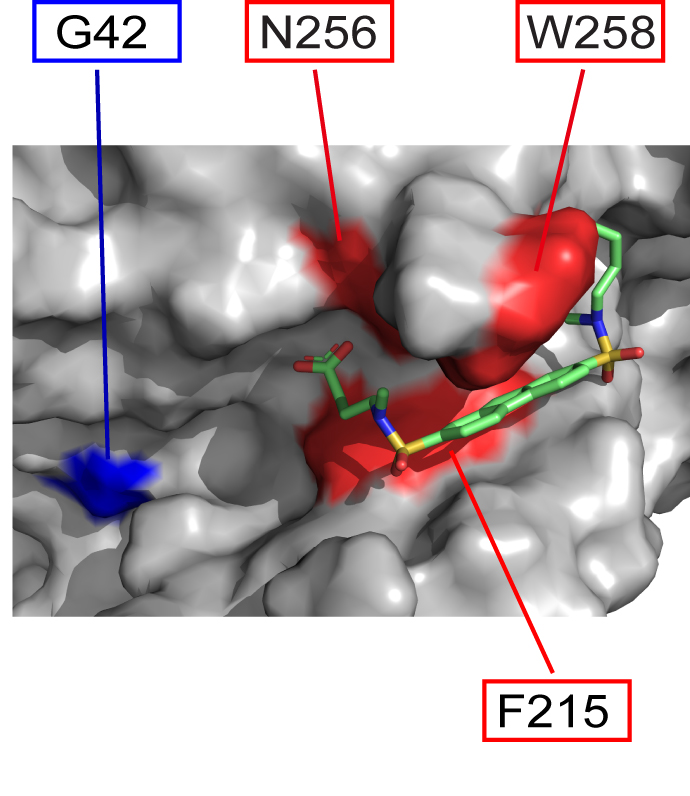 mechanism of signaling in cancer cells that drives invasion and metastasis. The publication can be found here: https://www.pnas.org/doi/10.1073/pnas.2213140120
mechanism of signaling in cancer cells that drives invasion and metastasis. The publication can be found here: https://www.pnas.org/doi/10.1073/pnas.2213140120
Human diseases frequently arise from defects in the mechanisms by which external cues are sensed and relayed to the interior of the cell. The proteins most widely targeted by existing therapeutic agents belong to a large family of cell surface receptors named G-protein-coupled receptors (GPCRs), which relay external cues by activating G-proteins in the interior of cells. Here, we report the surprising discovery of a synthetic small molecule that selectively targets G-proteins without compromising their ability to relay signals from GPCRs. Instead, this small molecule disrupts an atypical, GPCR-independent mechanism of G-protein signaling involved in cancer. This work reveals an alternative paradigm in targeting components of a signaling machinery with broad relevance in cellular communication in health and disease.
Perissi Lab awarded a new NIGMS Maximizing Investigator’s Research Award (MIRA)
The Perissi Lab has received a new NIGMS Maximizing Investigator's Research Award (MIRA) to investigate the "Coordination of PAR and Ub signaling in mitochondria". Research supported by the R35GM149339 award will investigate the spatial and functional regulation of mitochondria retrograde signaling in response to mitochondrial stress and explore the crosstalk between ubiquitination and ADP-ribosylation in regulating mitochondrial homeostasis. Successful completion of the proposed studies will lead to a better understanding of the mechanisms regulating metabolic adaptation to mitochondrial stress and possibly reveal novel pathways to target for therapeutic purposes.
Congratulations to both Andrew Tilston-Lunel and Da-Yuan Chen on being selected for the Department of Biochemistry& Cell Biology Early Career Development Award this year.
Congratulations to both Andrew Tilston-Lunel and Da-Yuan Chen on being selected for the Department of Biochemistry& Cell Biology Early Career Development Award this year.
Each recipient was awarded a one-year pilot grant of $20,000 for a project based on an innovative idea that establishes a new research direction.

Andrew is a Postdoctoral Associate working in the Varelas laboratory on a project entitled: “Visualizing mechanical dynamics in polarized epithelium”.

Da-Yuan is a Postdoctoral Associate working in the Saeed laboratory on a project entitled: “Investigating the Composition of Coronavirus Replication Organelles”.
Both recipients will present a seminar on their project later this year.
Mohsan Saeed joins TWiV to discuss the work of his laboratory… Check out the podcast!
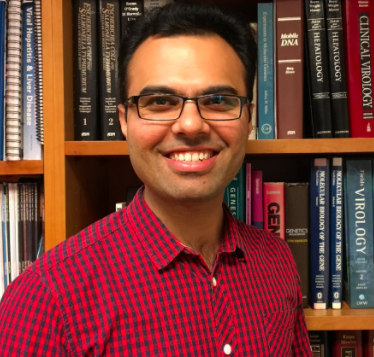 Mohsan joins TWiV to discuss the work of his laboratory showing that spike and nsp6 are determinants of Omicron attenuation, and why the work was widely misinterpreted by the press and the public.
Mohsan joins TWiV to discuss the work of his laboratory showing that spike and nsp6 are determinants of Omicron attenuation, and why the work was widely misinterpreted by the press and the public.
Check out the podcast using the link below: